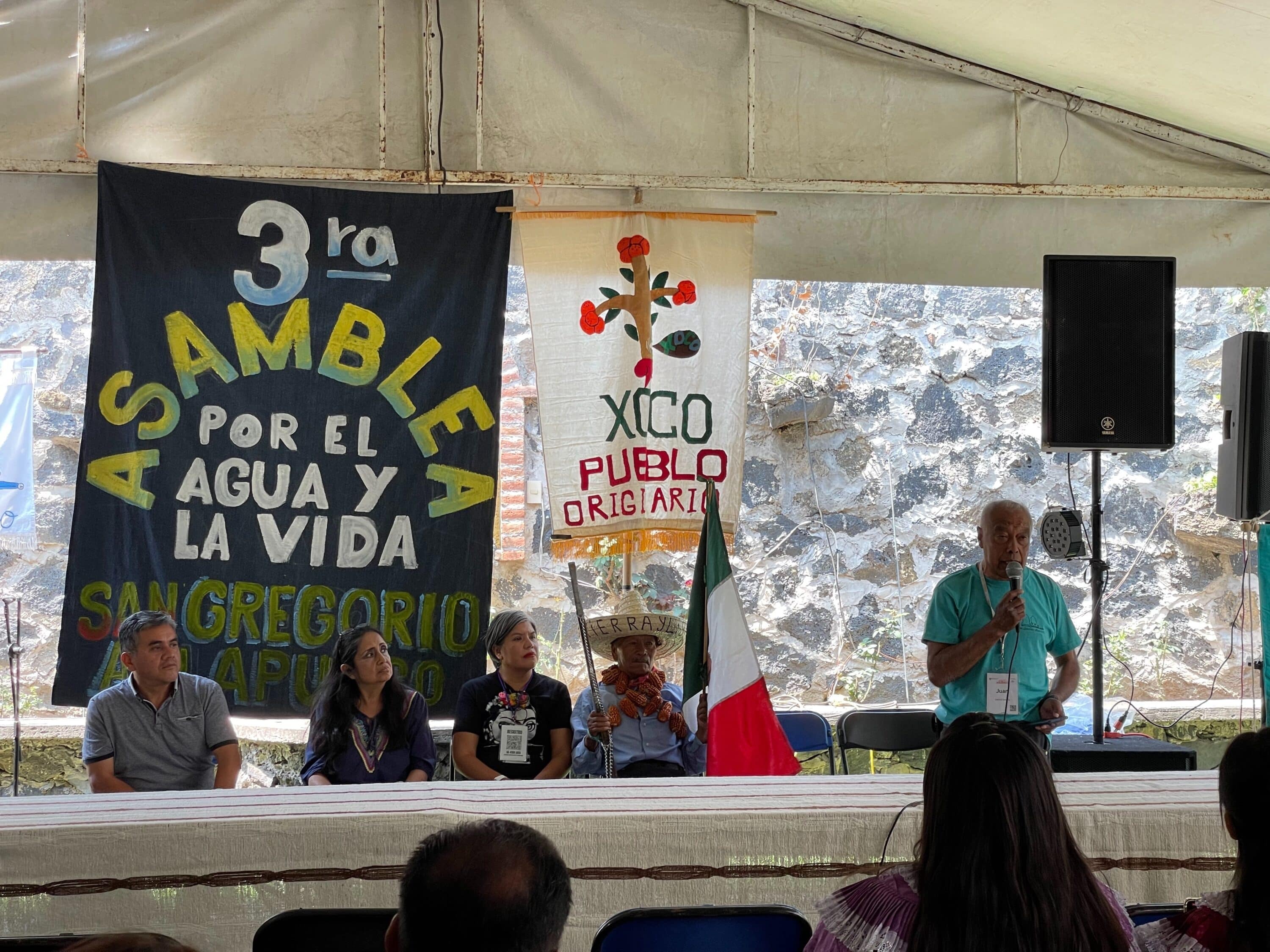As Mexico faces its worst water crisis in decades, Indigenous communities have organized to fight back against what they call an exploitative system that has looted and contaminated their ancestral lands.
MEXICO CITY (CN) — On Aug. 1, 20-year-old Lorenzo Froylán de la Cruz was forcibly disappeared in his hometown of Santa María Ostula, in the southern Mexican state of Michoacán, where he served on the town’s communal guard. His remains were found 10 days later.
His death was yet another in what water activists denounced as a “war of extermination” against Mexico’s Indigenous peoples and the resources on their ancestral lands at a press conference in Mexico City on Tuesday.
The conference was held to announce the conclusions and plans of action developed at the third biannual National Assembly for Water and Life, which took place on Aug. 12 and 13 in San Gregorio Atlapulco, in the historic Mexico City borough of Xochimilco.
This war “is taking place on our territories, especially ... against the Zapatista communities,” said activist Eduardo García, referring to the insurgents in the southern state of Chiapas who have opposed Mexico’s government since the mid-1990s.
He added that the war is being “developed and systematized” by President Andrés Manuel López Obrador “in order to guarantee and safeguard the interests of big capital and the narco-state.”
Such disapproval of López Obrador's security policy was expressed by several attendees at the assembly over the weekend. The president has been criticized for his advancement and expansion of a growing wave of militarization in Mexico during the 21st century.
In May, Zapatista communities alerted that “Chiapas is on the verge of civil war” in a statement signed by over 1,300 sympathizers and celebrity leaders, such as Mexican actor Diego Luna and American intellectual Noam Chomsky. The group held that López Obrador is either actively or passively complicit in the conflict.
Over 830 people attended the weekend’s assembly, representing more than 200 grassroots Indigenous and environmental organizations and 21 Mexican states. They contend that Mexico’s worsening water crisis is the result of a rapacious capitalist system backed by lopsided policy and intensifying violence.
“Organized crime and paramilitary groups systematically collaborate with the armed forces, the National Guard and state and municipal police, to the point where we can no longer understand them as distinct phenomena, but rather as codependent pieces,” said García, “[the] muscles and ligaments of the weaponized arm of the capitalist narco-state.”
![]()


